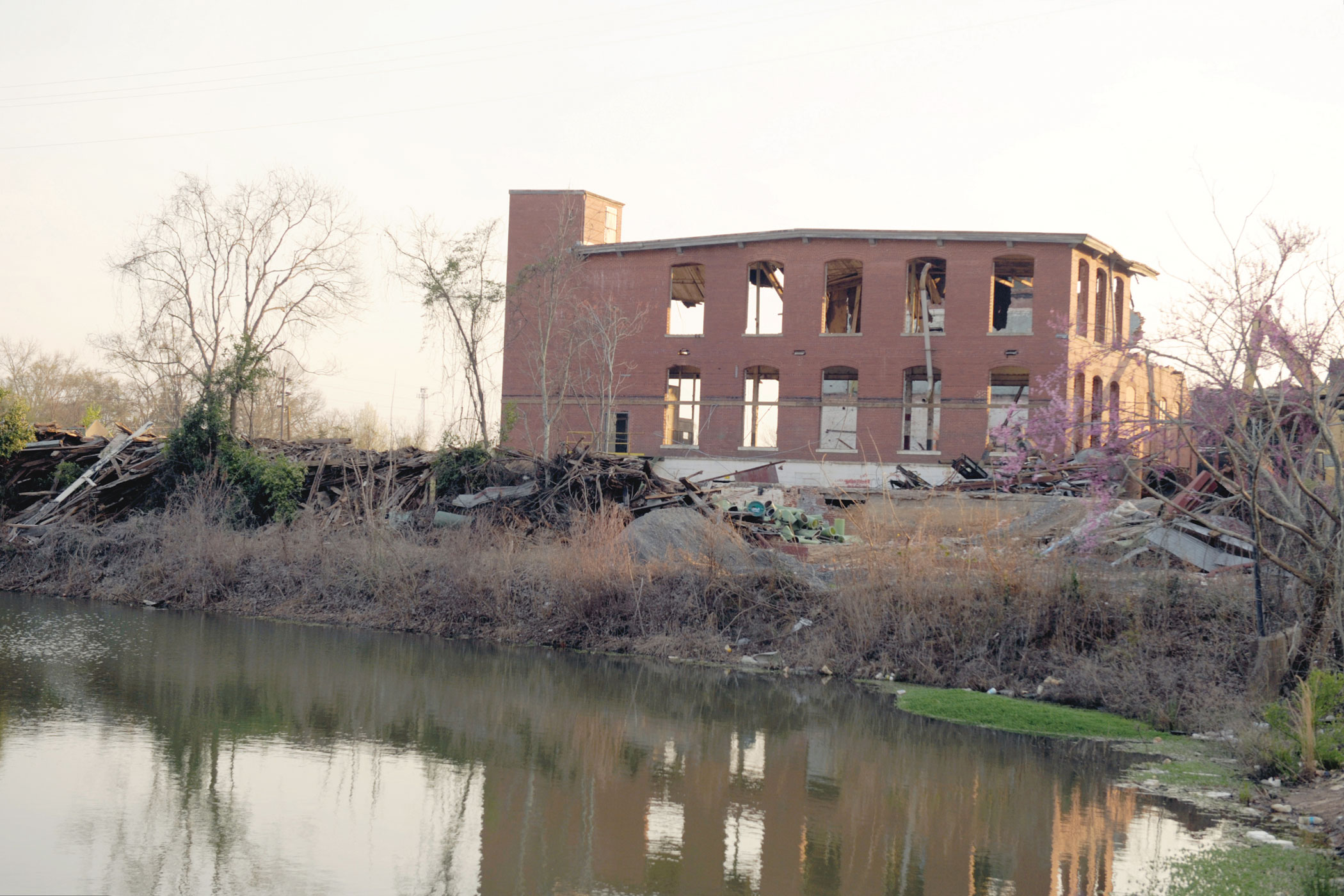By Fred Woods
Editor
Editor’s note: This article was first published in the April 3, 2015 issue of the Opelika Observer. It tells the history of Opelika’s beginning as a textile town with the opening of the Opelika Manufacturing Plant. The partly-demolished plant erupted in flames last Tuesday night. The origin is still unknown.
Before Opelika was ‘a railroad town’ it was a cotton town with gins and warehouses along the two rail lines and a compress to ‘squeeze’ the bales down for export and, beginning in 1901, two large cotton textile mills. Now the city’s last tie to the cotton industry is going by the wayside. The structure that housed the Opelika Manufacturing Company, or “the Old Mill” to many “old Opelikans,” is being demolished.
In 1900, local businessmen and investors organized a company to build and operate the Opelika Cotton Mill as the town’s first textile manufacturing facility. The original facility began operations on March 1, 1901, and initially provided employment for 125 workers. In 1902, a school was added, with Miss Sally Bagby the first teacher. That building was later used as the personnel department. Although badly deteriorated the (once white) wooden frame building is still standing as demolition begins around it.
Added onto in the late 30s and early 40s, the mill operated under the name: Opelika Manufacturing Company. At its heyday the mill employed 1,000 people. The facility went into decline and, in 1985, Opelika Manufacturing filed for bankruptcy. The Leshner Corporation then bought the mill and modernized extensively. In 1998, Pillowtex Corporation bought the mill when Leshner retired and almost immediately gave termination notices to the then-640 employees. One or two employees were retained to oversee the removal of equipment and the facility was finally abandoned in 2004.
The classic movie, “Norma Rae,” was filmed at the mill and surrounding area in 1978. The movie, released in 1979 and starring Sally Field and Beau Bridges, dealt with cotton mill workers’ right to unionize. Opelika Mill was an appropriate location, since a few years before it had been unionized just as the mill in “Norma Rae” was.
Plans to renovate the old building and convert it into upscale apartments and condominiums were put on hold because of the 2008 recession and never resumed as the building continued to depreciate.
Editor’s note: In the professional sociological literature and, sometimes in novels, it is popular to write of the exploitation of workers by textile and other mill owners and the damage to human psyches. Opelika’s two textile mills were apparently exceptions. The “Pepperell Kids” take considerable pride in their origins and speak of the long-time general manager, Homer Carter, almost in the same tone of voice reserved for God. T. Holmes Floyd, the best-known of the general managers of Opelika Manufacturing, was held in almost the same high esteem. Numbers of Opelika men have told me personally they would not have been able to go to college had it not been for part-time and full-time work in the summers and weekends provided by the mills. Actually they gave the credit to the mill manager: “Mr. Carter gave me a job” or “Mr. Floyd gave me a job.”

